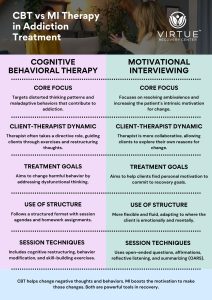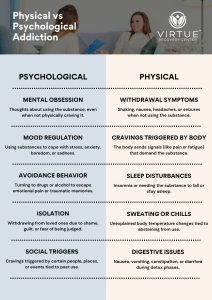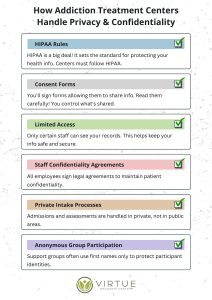Two-drug treatment strategies, which combine different therapeutic agents (naltrexone and bupropion) to address various symptoms of addiction, are being studied for effectiveness. Current research and clinical trials are evaluating the potential benefits of these approaches.
Key Takeaways
- Overview of Two-Drug Treatment for Meth Addiction: Two-drug treatment involves the use of naltrexone and bupropion to help individuals overcome methamphetamine addiction. Recent clinical trials show promise in treating methamphetamine use disorder.
- Effectiveness in Treating Methamphetamine Use Disorder: This treatment method has shown success in reducing meth use and improving patient outcomes, offering an effective solution for those struggling with stimulant use disorder.
- Findings from Recent Clinical Trials: Key studies funded by the National Institute on Drug Abuse have demonstrated the effectiveness of this two-drug approach, with significant improvements compared to placebo groups.
- Importance of Comprehensive Addiction Treatment: Combining pharmacological treatments with behavioral therapy and support systems is crucial for long-term recovery from meth addiction.
Introduction
Methamphetamine addiction is a significant public health issue characterized by compulsive meth use and severe health consequences. Traditional treatments often struggle to address the complexity of methamphetamine use disorder, leading researchers to explore new methods. This article investigates the effectiveness of a two-drug treatment approach, examining its benefits, clinical trial findings, and the importance of comprehensive addiction treatment.
Understanding Methamphetamine Addiction
What is Methamphetamine?
Methamphetamine, commonly known as meth, is a powerful stimulant that affects the central nervous system. It is often abused for its euphoric effects and increased energy levels. However, meth use leads to severe health issues, including addiction, cognitive decline, and physical deterioration.
Symptoms and Effects of Meth Use
Methamphetamine use has devastating effects on both the brain and body. Short-term symptoms include increased heart rate, elevated blood pressure, and hyperactivity. Long-term use can lead to severe dental problems (“meth mouth”), skin sores, and significant brain damage. Individuals with meth addiction often exhibit intense drug cravings, erratic behavior, and withdrawal symptoms such as fatigue, depression, and severe anxiety.
Traditional Treatments for Meth Addiction
Behavioral Therapy and Contingency Management
Traditional treatments for meth addiction primarily involve behavioral therapy and contingency management. These methods focus on changing drug-related behaviors and providing incentives for drug-free urine tests. While effective for some, these treatments often fall short of addressing the intense cravings and withdrawal symptoms associated with methamphetamine use disorder.
Challenges and Limitations
Despite the benefits of traditional therapies, they face significant challenges, including high relapse rates and limited accessibility. Many individuals struggling with methamphetamine addiction require more comprehensive approaches that address both the psychological and physiological aspects of addiction.
Two-Drug Treatment Approach
Overview of the Two-Drug Treatment Method
The two-drug treatment approach combines naltrexone and bupropion to target methamphetamine addiction. Naltrexone, commonly used for opioid addiction, blocks the euphoric effects of methamphetamine, while bupropion helps reduce cravings and withdrawal symptoms.
Medications Used (e.g., Naltrexone and Bupropion)
- Naltrexone: This medication works by blocking opioid receptors in the brain, which also affects the rewarding effects of methamphetamine. It is typically used to treat opioid addiction but has shown promise in stimulant use disorder.
- Bupropion: Known for treating depression and aiding smoking cessation, bupropion affects neurotransmitters in the brain that influence mood and cravings. When combined with naltrexone, it enhances the overall effectiveness of the treatment.
Mechanism of Action
The combination of naltrexone and bupropion works synergistically to reduce meth use. Naltrexone blocks the reward pathways in the brain, preventing the euphoric effects of methamphetamine, while bupropion alleviates withdrawal symptoms and reduces cravings. This dual approach addresses both the physical and psychological components of methamphetamine addiction.
Clinical Trials and Research Findings
Key Studies and Their Outcomes
Recent clinical trials have shown promising results for the two-drug treatment method. Studies funded by the National Institute on Drug Abuse demonstrated significant reductions in meth use among participants receiving the combination of naltrexone and bupropion compared to those in the placebo group.
Role of the National Institute on Drug Abuse
The National Institute on Drug Abuse (NIDA) has played a crucial role in researching and funding studies on the effectiveness of two-drug treatment for methamphetamine use disorder. Their support has led to groundbreaking findings supporting this treatment’s use in clinical settings.
Comparison with Placebo Groups
In clinical trials, participants receiving the two-drug treatment showed higher success rates in reducing meth use and improving overall health compared to those in the placebo group. These findings highlight the potential of this treatment to offer a viable solution for individuals struggling with meth addiction.
Effectiveness and Benefits
Success Rates and Patient Outcomes
The two-drug treatment approach has demonstrated high success rates in clinical settings. Patients receiving this treatment report significant reductions in meth use, fewer cravings, and improved quality of life. The combination of naltrexone and bupropion offers an effective solution for those with stimulant use disorder.
Reduction in Meth Use and Overdose Deaths
Studies have shown that patients treated with naltrexone and bupropion experience fewer overdose deaths and a marked decrease in methamphetamine use. This treatment method provides a safer alternative to traditional approaches, with better long-term outcomes.
Benefits Of Traditional Treatments
Compared to traditional behavioral therapy and contingency management, the two-drug treatment method offers more comprehensive relief from the symptoms of meth addiction. By addressing both the physical and psychological aspects of addiction, this approach leads to more sustainable recovery and lower relapse rates.
Comprehensive Addiction Treatment
Importance of Combining Medications with Behavioral Therapy
While the two-drug treatment method is effective, combining it with behavioral therapy enhances the overall success of addiction treatment. Behavioral therapies help patients develop coping strategies, improve mental health, and address underlying issues contributing to their addiction.
Role of Support Systems and Rehabilitation Programs
Support systems and rehabilitation programs are crucial for long-term recovery. These programs provide a structured environment where individuals can receive continuous support, counseling, and medical care, ensuring they remain on the path to recovery.
Long-term Recovery Strategies
Long-term recovery from meth addiction involves a combination of pharmacological treatment, behavioral therapy, and support from family and friends. Ongoing research and treatment advancements continue to improve the strategies available to help individuals achieve and maintain sobriety.
Conclusion
The two-drug treatment approach, involving naltrexone and bupropion, shows significant promise in treating methamphetamine addiction. Clinical trials funded by the National Institute on Drug Abuse have demonstrated its effectiveness, highlighting the importance of combining pharmacological treatments with behavioral therapy for comprehensive addiction care.
If you or a loved one is struggling with addiction, contact Virtue Recovery Las Vegas at 866-520-2861 for help. Early intervention and professional assistance can make a significant difference in overcoming addiction and achieving long-term recovery.
FAQs
What is the two-drug treatment for meth addiction?
The two-drug treatment for meth addiction involves using naltrexone and bupropion to reduce cravings and block the euphoric effects of methamphetamine.
How effective is this treatment method?
Recent clinical trials have shown that the two-drug treatment is highly effective in reducing meth use and improving patient outcomes compared to traditional treatments.
What are the side effects of the medications used?
Naltrexone and bupropion can cause side effects such as nausea, headache, and insomnia. It is important to use these medications under medical supervision.
Does insurance cover meth addiction?
Insurance coverage for meth addiction treatment varies depending on the policy and provider. Most health insurance plans, especially those compliant with the Affordable Care Act, cover substance abuse treatment, but the extent of coverage can differ.
Are medications used in meth addiction?
Yes, while there are no FDA-approved medications specifically for methamphetamine addiction, other medications are sometimes used off-label to help alleviate symptoms and manage cravings. Behavioral therapies are the primary treatment for meth addiction.
Why does meth use cause weight loss?
Meth use often leads to weight loss because it suppresses appetite and increases metabolism. Additionally, methamphetamine can lead to an increased level of physical activity and reduced overall caloric intake.
How long does it take to get addicted to meth?
The time it takes to become addicted to meth can vary widely among individuals, but methamphetamine is highly addictive and can lead to dependency very quickly. Some people might experience signs of addiction after just a few uses.
How can I help someone who is addicted to meth?
Supporting someone with meth addiction involves encouraging treatment and recovery, providing emotional support, and helping them access professional services. It’s important to maintain clear boundaries and seek support for yourself, too.
How can I access two-drug treatment for meth addiction?
You can access two-drug treatment for meth addiction by contacting addiction treatment centers like Virtue Recovery Las Vegas at 866-520-2861.
Where can I find help for meth addiction?
Virtue Recovery Las Vegas offers comprehensive treatment programs for meth addiction. Contact them at 866-520-2861 for support and assistance in your recovery journey.
Resources
https://www.statnews.com/2021/01/13/drugs-treat-methamphetamine-addiction-trial/













